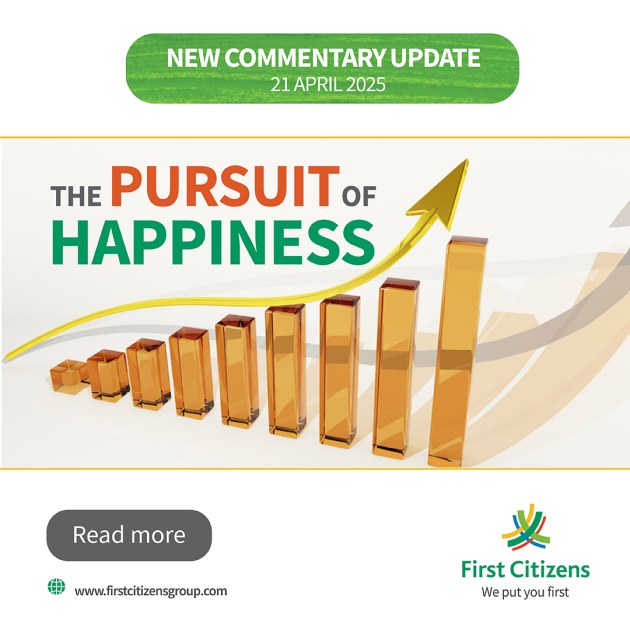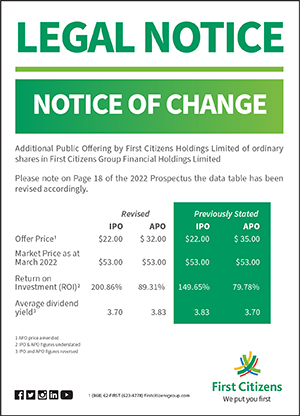The Pursuit of Happiness
Commentary

“Not everything that counts can be counted; and not everything that can be counted counts”
~Albert Einstein
On 20 March, the world celebrated happiness! Back in 2012, the General Assembly of the United Nations (UN) proclaimed 20 March as the ‘International Day of Happiness’. This resolution was initiated by Bhutan, which is renowned for its emphasis on measuring happiness by the adoption of a Gross National Happiness Index over the traditional measure of Gross Domestic Product (GDP) during the 1970’s. According to the UN, the underlying motive for recognizing an International Day of Happiness was to ensure ‘a more inclusive, equitable and balanced approach to economic growth that promotes the happiness and well-being of all peoples’. This is also invariably linked to the UN’s Sustainable Development Goals (SDGs).
Traditionally, policymakers have relied on conventional economic statistics, such as GDP per capita to measure the wellbeing of a country’s population and to ultimately determine economic and social policies. However, there are fundamental flaws in simply using such measures as a measure of wellbeing – for example, while a country’s GDP may capture some leisure activity (entertainment and recreation), it does not necessarily capture leisure time, so output (GDP) can be through the roof, but that could probably be because people are working longer hours. GDP also does not capture hours spent in traffic or philanthropic endeavors or other unpaid activities that can all affect wellbeing.
There is even a branch of economics called ‘Happiness Economics’ which explores how economic issues affect individual satisfaction and goes beyond the classic profit and wealth maximization function to ‘happiness maximization’. In 1990, the UN Development Program (UNDP) introduced the Human Development Index (HDI), which focused on ‘the richness of human life, rather than simply the richness of the economy in which human beings live’. The HDI looks at three key dimensions of human development, including: a long and healthy life, access to knowledge and a decent standard of living, combining both economic and social development into a single score. The index ranks countries based on their scores and are categorized as low, medium, high and very high levels of human development. The last HDI report showed that Switzerland ranked the highest, while Somalia was at the bottom. Interestingly, the US ranked 20th out of 193 countries, although it is the largest and richest in the world, as measured by GDP.
The term ‘Gross National Happiness (GNH) was coined by Bhutan’s King in 1972 when the Centre for Bhutan Studies constructed a single number index for the GNH that can be dissected into individual component indicators that are useful in different sectors for planning and technical purposes at the ministerial and departmental levels. The GNH includes nine core dimensions that are regarded as major components of happiness and well-being in Bhutan. These are: psychological wellbeing; time use; community vitality; culture; health; education; environmental diversity; living standard and governance.
In 2012, the UN produced its inaugural World Happiness Report (WHR), building on the work done by the Bhutanese. The WHR contains the global happiness ranking of countries and is based on the average life evaluations over the three preceding years. The index examines several aspects of life – economics, psychology and sociology and some of the factors used are GDP per capita, life expectancy, having someone to count on (social support), a sense of freedom, generosity and perceptions of corruption, according to the 2025 edition of the WHR. The theme for this year’s report focused on ‘caring and sharing’ and revealed (among other things) fascinating findings, including that sharing meals with others is strongly linked with wellbeing across all regions (the number of people dining alone in the US rose 53% over the past 20 years). Another finding from the report is that household size is closely linked to happiness (4-5 persons living together enjoy the highest levels of happiness in Mexico and Europe).

In the 2025 WHR, Finland ranked the happiest in the world amongst 140 countries, for the eighth consecutive year. The world’s largest economy, the US, was not listed among the top 10 happiest nations, not even in the top 20. The US ranked 24/ 140 countries, between the UK (#23) and Belize (#25) and is the lowest ever position for the world’s largest economy. Figure 1 shows that GDP does not necessarily equate to happiness of citizens. Costa Rica is a prime example – its average GDP per capita between 2022-2024 was just above USD11,000, yet they were ranked as the sixth happiest countries in the world, similarly for Mexico, whose GDP per capita is around USD10,500, while they were the 10th happiest nation in the world. These two countries entered the top 10 for the first time. One of the smallest economies, Belize with an average GDP per capita of just USD5,800, sits as the 25th happiest nation, higher than countries such as Saudi Arabia, France and Singapore.
Where Does Trinidad and Tobago Stand?
In the 2023/ 2024 Human Development Report, Trinidad and Tobago (T&T) ranked 60th out of 193 countries and was categorized as ‘very high’ level of human development. The country’s HDI score rose from 0.656 in 1990 to its 2022 score of 0.814, out of a maximum score of 1 (where 1 is the highest level of human development). This almost 25% improvement in the country’s HDI score was largely due to notable improvements in T&T’s metrics over the period, including in life expectancy (+6.4 years), mean years of schooling (+4.5 years) and a significant 110% increase in gross national income per capita.
However, while the country has the enviable status of ‘very high’ level of human development, T&T’s happiness index score has dropped markedly. In the 2025 World Happiness Report, T&T ranked 70th out of 147 countries. This is a significant decline compared to 2017, when the country ranked 38th in the world. Among the six explanatory factors (social support, GDP per capita, Healthy life expectancy, Freedom, Generosity and perception of Corruption), freedomand perception of corruptionwere ranked 82nd and 133rd respectively, while generosity ranked 38th. Interestingly, the data for T&T showed that negative emotions rose from 24.8% in 217 (rank 56) to 34.6% in 2024 (rank 104), while the rankings for positive emotions dropped by three points from 21st to 24th.
[1] ‘Are you satisfied or dissatisfied with your freedom to do what you want with your life.
[2] Average of two questions: ‘Is corruption widespread throughout the government or not?’ and ‘Is corruption widespread throughout businesses or not?’
[3] Have you donated money to a charity in the past month?


It is evident that wealth does not necessarily equate to a better quality of life or individual happiness in a country. Official economic statistics are very useful for policy and decision making because they act as a guide regarding the state of the economy on an aggregated level. However, it should not and cannot be the be-all and end-all of measuring wellbeing. There are some factors that should be captured and are not, and somethings that are captured that probably shouldn’t be. The Bhutanese understood this from very early on, and it is catching on, with various measures now available to truly capture the wellbeing and happiness of nations. This is especially the case for small and developing countries such as those in the Caribbean where income equality continues to be a major challenge. Formulating policies based on wider measures of quality of life is paramount in supporting the drive of poverty reduction, which remains a prominent issue in the Caribbean region.
DISCLAIMER
First Citizens Bank Limited (hereinafter “the Bank”) has prepared this report which is provided for informational purposes only and without any obligation, whether contractual or otherwise. The content of the report is subject to change without any prior notice. All opinions and estimates in the report constitute the author’s own judgment as at the date of the report. All information contained in the report that has been obtained or arrived at from sources which the Bank believes to be reliable in good faith but the Bank disclaims any warranty, express or implied, as to the accuracy, timeliness, completeness of the information given or the assessments made in the report and opinions expressed in the report may change without notice. The Bank disclaims any and all warranties, express or implied, including without limitation warranties of satisfactory quality and fitness for a particular purpose with respect to the information contained in the report. This report does not constitute nor is it intended as a solicitation, an offer, a recommendation to buy, hold, or sell any securities, products, service, investment or a recommendation to participate in any particular trading scheme discussed herein. The securities discussed in this report may not be suitable to all investors, therefore Investors wishing to purchase any of the securities mentioned should consult an investment adviser. The information in this report is not intended, in part or in whole, as financial advice. The information in this report shall not be used as part of any prospectus, offering memorandum or other disclosure ascribable to any issuer of securities. The use of the information in this report for the purpose of or with the effect of incorporating any such information into any disclosure intended for any investor or potential investor is not authorized.
DISCLOSURE
We, First Citizens Bank Limited hereby state that (1) the views expressed in this Research report reflect our personal view about any or all of the subject securities or issuers referred to in this Research report, (2) we are a beneficial owner of securities of the issuer (3) no part of our compensation was, is or will be directly or indirectly related to the specific recommendations or views expressed in this Research report (4) we have acted as underwriter in the distribution of securities referred to in this Research report in the three years immediately preceding and (5) we do have a direct or indirect financial or other interest in the subject securities or issuers referred to in this Research report.

